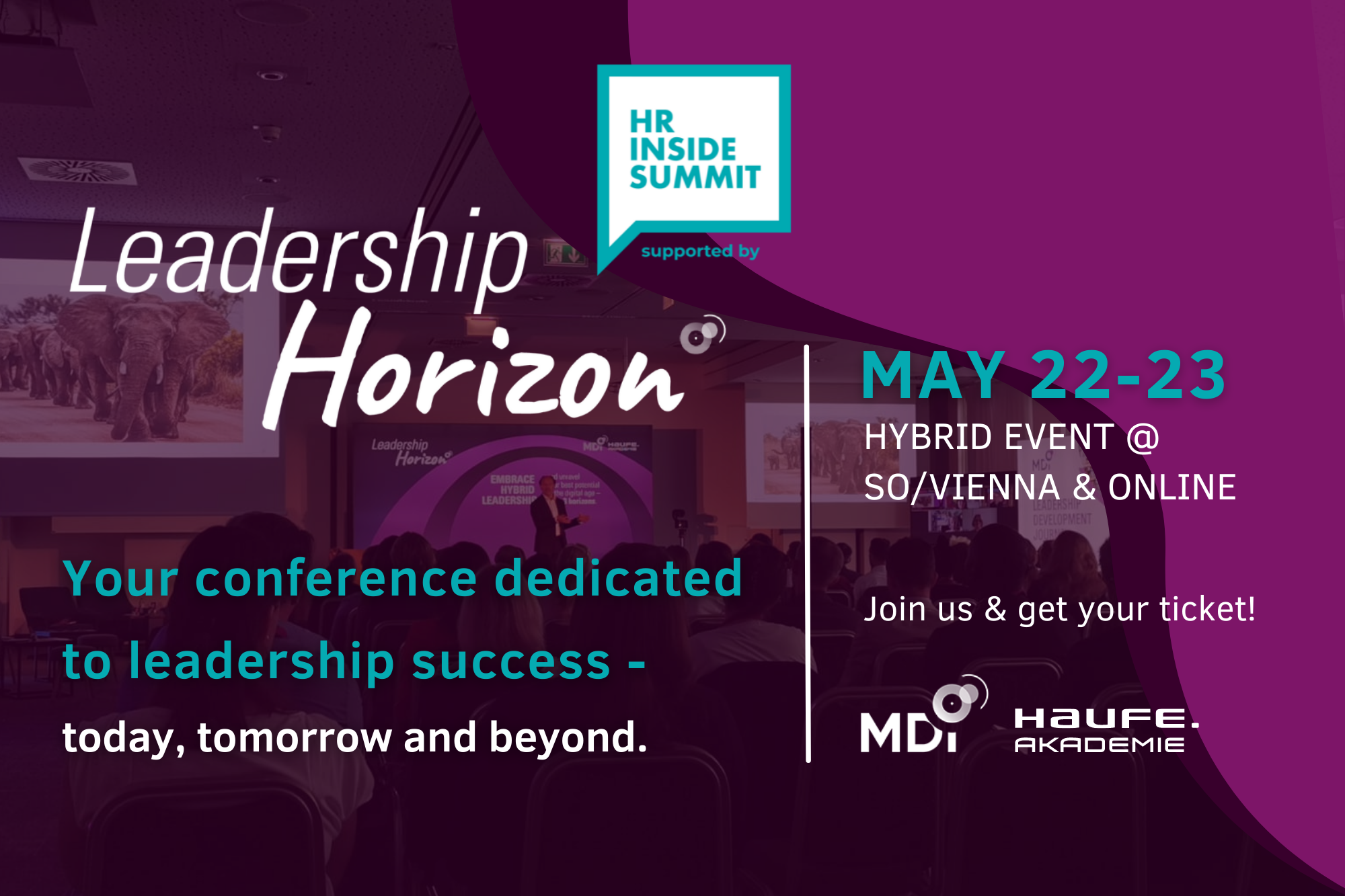
Successful instruments for Employee Retention
Successful instruments for Employee Retention
Employer Branding: How to position your company sustainably as an attractive employer
Today’s employers and leaders face several challenges. The search for qualified employees is becoming increasingly difficult and lengthy, and if you want to win over the best minds on the market, you have to have a lot to offer today’s applicants.
More than ever, the tables are being turned: High potentials are choosing their employers, not the other way around. In this distinct employee market, the company must withstand the critical gaze of potential candidates and convince them of its attractiveness as an employer.
For some time now, the recruiting process has therefore become one of the most challenging tasks for companies. The war for talents, i.e. the competition between companies for the best talents and specialists, has also become a fixed part of everyday working life in Austria.
The change of values in employer branding
It wasn’t all that long ago that if an employer offered a secure job with a good or above-average salary and a generous bonus on top, then they could choose from a pool of talent and secure the candidates who best fit the advertised positions.
Today, this is no longer enough to find motivated employees. The “cash for time” model has had its day in this country.
The younger generations in particular have much higher expectations of employers today. The focus is on topics such as the working environment, flexibility and hierarchies, corporate culture, purpose, and, last but not least, how the company deals with corporate social responsibility.
In addition to salary, flexible working time models and a healthy work-life balance, appreciation, respectful interaction, well-being in the workplace and meaningful work are of particular importance today and successful instruments for Employee Retention.
Strengthening employer branding and positioning as an employer of choice
Companies have different ideas about corporate image and what it should look like in the future. But they all have the same goals: They want to offer their employees a better jobs and retain them in the long term. Employer branding helps to improve the company’s image and reputation as well as its employer brand.
It is an important element in achieving greater employee loyalty and reducing turnover rates, which are costly for companies. Employees who feel valued by their employer stay with the company longer and perform better. This means that employers not only have the opportunity to attract new talent but also to retain existing employees.
But how does a company manage to position itself as an employer of choice and thus secure competitive advantages in the battle for high potentials and retain the best minds?

These are the questions companies need to ask themselves as part of the employer branding process today
- What image do I want to have on the employer market?
- How can I get & keep the employees I need to achieve my goals?
- What does the “new generation” expect from employers?
- What can established companies learn from start-ups?
- What is the company’s purpose and how is it lived?
Measures to improve the employer brand
There are many ways in employer branding to create a modern and pleasant working environment with additional incentive systems. Since employees can be very different – keyword “Clash of Generations” – it is important to turn different screws to meet as many needs as possible.
Today, a compensation package has long been more than just a salary. It is therefore a challenge for modern management to put together a good overall package and to be authentic at the same time. Roughly speaking, there are 5 pillars that should be considered.
1. Work-Life-Balance
The name of the game in today’s job search. A good work-life balance is not only desired by applicants, it is a prerequisite and is at least as important as adequate pay. Today, it is more important than ever that the job fits in well with private life, not the other way around. This is what a company can offer in order to fulfill this wish:
- Home Office
- Remote Work
- Flexible time management
- 4-day week
- Offer flexibility
- Workation
2. Trust – Be a Leader, not a Boss
Employer branding is an important instrument for employee retention. It is about the social reputation of a company and the recognition of its employees as appreciative employers.
Independent work is playing an increasingly important role. In modern companies, employees are no longer purely followers of orders. Instead, they show initiative and assume responsibility. Meaningful areas of responsibility, flat hierarchies, opportunities for creative participation and development, and the strengths of each person are in the foreground.
This aspect of the management culture has a significant impact on employer branding. Positive reviews on evaluation platforms by employees should not be underestimated. Particular attention should be paid to the following:
- Trust employees, relinquish control
- Focus on independent work
- Strengthen initiative & Motivation
- Room for mistakes – talk about them & learn
- transparency
- communication
- Feedback culture
3. (Tax-free) Benefits: An indispensable part of modern employer branding
A simple way to show appreciation to employees is through (tax-free) benefits. Gratitude for the work performed by employees should be reflected in more than just their salary.
The lunch allowance is particularly attractive in Austria. Tax allowances of up to €8 per employee per working day (equivalent to an annual tax allowance of €1,760 per employee) make this incentive particularly worthwhile for both sides. A varied and balanced diet has been proven to have a positive effect on human health.
As an employer, the well-being of your employees and staff catering should therefore be close to your heart – at least because of expensive sick leave and reduced productivity.

Around 300,000 employees across Austria are already using Edenred’s digital meal and food vouchers. These can be easily redeemed by recycled plastic card or directly by smartphone with Apple Pay or Google Pay at more than 20,000 redemption points in retail and catering, including online.
This ensures a balanced lunch break both in the office and in the home office – a factor that should not be underestimated, both in promoting health and employee loyalty and motivation.
The following benefits are particularly suitable as employer branding measures:
- Meal subsidy
- Gifts on occasions (e.g. wedding, birth, anniversary, Christmas)
- Public transport ticket
- Support for sports activities
- Retirement provision
- Discounts
4. Culture & Purpose: Indispensable in Employer Branding for Generation Z
It is becoming increasingly important, especially for young talents of the younger generations who are striving to enter the job market, that the company’s values match their own. Applicants are also increasingly paying attention to the sincere and authentic commitment of companies in the areas of sustainability and social issues – the keyword here is corporate social responsibility.
The purpose is becoming the criterion by which young applicants in particular choose their employer. It must create meaning and be in harmony with that of the employees in order to motivate and evoke the best.
Pay particular attention to the following points for successful employer branding:
- Sincere and authentic commitment
- No social and greenwashing
- Clear definition & communication of purpose
- Live purpose & values
- Allow employees to set their own initiatives
5. Workplace – more than just a desk
What may sound trivial at first glance is also part of employer branding: modern office environments are becoming increasingly popular. In order to work together successfully and develop innovative ideas, employees need appropriate spaces in which they can feel comfortable and develop.
Decentralized working often leads to desk-sharing concepts in offices. When desks are shared, fewer physical workstations are needed. This in turn means that space can be created for new premises. Here, the focus should be on connecting activities. Anyone who thinks a ping-pong table is the end of productivity has already lost out on some applicants. Team spirit and corporate culture can be crucial in employer branding.
A few suggestions for the use of won premises:
- Telephone boxes
- Writable walls
- Space for recreation & creative development
- Social spaces (games, food, etc.)

Conclusion
Today’s applicants are looking for their employer. They expect more and want to change things. Companies need to rethink and quickly adapt to the new conditions in the labor market. The current recruiting market is an applicant market.
Companies need to clearly understand that it is not necessarily the job seekers who apply to the company, but also the companies as employers. If this understanding is given, an important first step towards modern employer branding has been taken.
To prepare for this, a very clear definition is needed of what a company can offer job seekers and why potential employees would want to work for it. Not only salary plays a role, but also and above all the purpose behind the company, the corporate culture, the team spirit, development opportunities, benefits, flexible working, and much more.
At the end of the day, it’s all about the “image” of the company. A good image requires real change and is more than clever communication. The topic of employer branding should therefore be pushed authentically across all channels and offer an honest insight into the company’s everyday life.

Christoph Monschein
General Manager of Edenred Austria & Transformation Leader
Christoph is a transformation leader with >10 years of achieving growth and value creation in both P&L leadership and top-management consulting positions.
His experience includes delivering and implementing growth strategies as well as transformation strategies, developing management teams, leading local and global teams and driving change.

